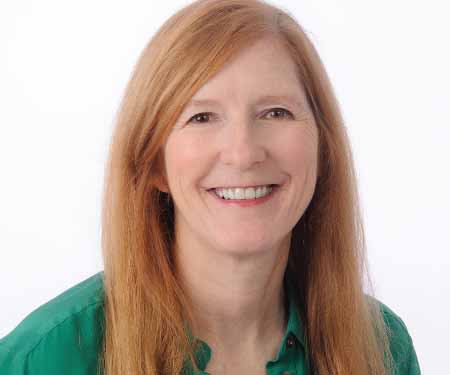
Since Elizabeth Vanexan moved to Corpus Christi in 2001 with her husband, neuroradiologist Kenneth Vanexan, MD, she has been putting her social skills to work on behalf of medicine. It started with an invitation to attend her county’s Texas Medical Association Alliance (TMAA) chapter meeting, which she eagerly accepted.
“I felt so welcome,” she said. “After I was introduced to the Texas Medical Association Alliance, I always had someone by my side.”
The experience led her to become a member and eventually 2015-16 president of the Nueces County Medical Society Alliance, during which time she immersed herself in TMA advocacy, oversaw TMA community outreach programs, restructured social media campaigns, and grew membership through revitalized initiatives.
Now as incoming president of TMAA, Ms. Vanexan aims to keep that momentum going and bring her fellow alliance chapters side-by-side, especially now that the COVID-19 pandemic is coming to an end.
“I want to build on what the past presidents have done by traveling to every alliance chapter I can,” she said. “In order for us at the state level to create a relationship with the different county chapters and provide them with the resources they need, we must connect in person with each alliance chapter in Texas.”
Strengthening relationships
Founded in 1918 by physician wives, TMAA is a diverse volunteer force of approximately 2,500 physician spouses, physicians, residents, and medical students from across the state who work on behalf of medicine through community service and legislative advocacy, such as through TMA’s award-winning program, First Tuesdays at the Capitol. (See “Texas House Recognizes TMA Alliance on First Tuesdays’ 20th Anniversary,“ page 22.)
Ms. Vanexan says her Nueces County alliance membership opened the door to a family within the House of Medicine that extended past health care to all areas of life. From coordinating school pick-ups and drop-offs, to cooking meals for member families in need, “we care for and want the best for each other,” she said. “We want the best for the patient and the best for our spouses. Anything we can do to help the medical community, we do it.”
That meant fighting for medical liability reform at the time Ms. Vanexan joined the alliance.
“Nueces County alliance members realized the importance [of tort reform] and became very focused on advocating for it both on the county and state levels,” Ms. Vanexan recalled.
Inspired by her colleagues, Ms. Vanexan used her love for people to advocate for the future of medicine and oversee community outreach programs such as TMA’s Hard Hats for Little Heads – which has provided helmets to Corpus Christi-area children for more than a decade – and the national Shop With a Cop program, which aims to establish friendly relations between police officers and families from underprivileged areas.
As her presidential term approaches, Ms. Vanexan’s goal is to revitalize and raise money for such initiatives, recruit new TMAA members, and mentor alliance newcomers just as she, too, was mentored by her predecessor, 2022-23 TMAA President Libby White.
“Libby has been a fantastic alliance leader,” she said. “For me, she’s been a great mentor to learn from and see where my presidency can go to keep on with what she and other presidents have done in the past. Continuing the efforts of our amazing past presidents is monumental to me.”
Ms. White, who became TMAA president just a couple of years into the COVID-19 pandemic, said she used her term to “welcome everyone back.” By embracing intimate, grassroots efforts like one-on-one meetings with alliance members and small, backyard gatherings, Ms. White reconnected the alliance, its members, and Texas communities after COVID-19 separated them.
“We don’t need to have big luncheons or keynote events – although we certainly love them – to connect with one another,” she said. “The pandemic taught the alliance how to help each other on whatever level we can, whether through Zoom or a chat at a coffee shop.”
Ms. Vanexan aims to continue Ms. White’s legacy by strengthening all of Texas’ alliance chapters, from fundraising for local health campaigns to incorporating county ideas at the state level. By doing so, she believes she can connect alliance chapters in an even stronger way than before.
“The state alliance board can’t be in a good place if [chapters are] not in a good place,” she said.